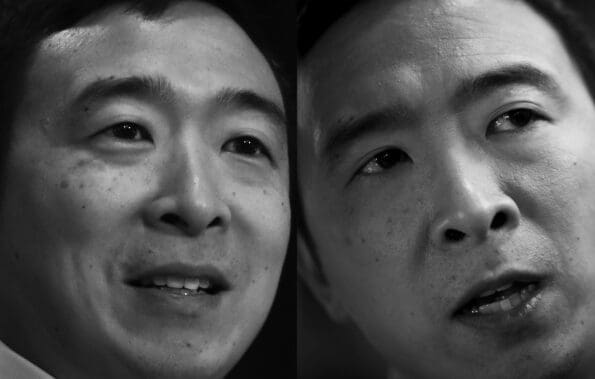We’re down to single digits.
Eight Democratic presidential candidates remain after three dropped out this week: Senator Michael Bennet of Colorado, former Gov. Deval Patrick of Massachusetts and Andrew Yang, who went from a relatively unknown entrepreneur to the leader of the #YangGang.
We were curious about that experience, so we called up our Yang chronicler extraordinaire, Matt Stevens.
Matt chatted with Mr. Yang this afternoon about his exit from the race, his signature proposal to provide everyone $1,000 a month, and his plans for the future. (Their conversation has been edited and condensed.)
Once you finished tying up loose ends as a presidential candidate, what’s the first fun thing you did?
MR. YANG What’s interesting, Matt, is that when you talk about the tying up of a presidential campaign it’s actually very much a multiday affair. I’m in Nevada right now to thank the team and also show up at an event that we already sold tickets to. It’s a different affair now. But you still want to come out and thank donors and staff and volunteers.
It’s not that you go back and then you give a speech and then you can go and get on with your life or something. My phone started blowing up with text messages and calls. I received a phone call from each of the other candidates, and so there was a lot of time and having those conversations and responding to people.
The thing I’m looking forward to most is getting home to my kids because I miss them terribly.
There are people who put months and months into making you successful, and then you have to pull the rug out from under the campaign in a snap second. How were those conversations?
Most of the folks I’ve spoken to have been very proud of everything we’ve done. They do have a sense of perspective, that if you had something like 28 people, that 27 of them are going to end up falling short. We outperformed expectations at just about every stage.
So people were upset. But many people also felt a sense of accomplishment. And I think in some cases, a sense of a return to normalcy. Because like you just said, people are working hard, and they’re also not making time for their loved ones or personal time or for their friends’ birthdays and on and on.
I am continuing to look forward to that return to normalcy. You mentioned that you talked to a bunch of candidates. Anything you’re willing to share?
It was really touching. I got phone calls, text messages from people who I’ve become friends with over the last number of months, including Cory, Kamala, Beto and people that have reached out on a personal level. They’re not trying to get anything out of it. It’s just sort of sharing your human experience.
But, you know, I also received calls from Joe, Elizabeth, Bernie and folks that I have admired for years and got to know the last number of weeks.
Have you heard at all from your former mayor, Michael Bloomberg?
He was one of the people that called me after Tuesday night.
I know you said you will not rule out a run for mayor. Are you getting feelers?
Certainly people have been reaching out with various questions about the future, which is invigorating. We’re looking at different ways forward.
Do you think New York City could do a small-scale universal basic income?
I think New York City should do a large-scale universal basic income. To me, that seems obvious.
You said you would endorse any candidate who endorsed U.B.I. Do you plan to weigh in at some point?
I want to support the Democratic nominee. I don’t have any plans to endorse right now.
What are the moments you’re going remember from these two years of campaigning?
Even in traveling from New Hampshire and Nevada, I go through the airport and there were people who just congratulated me. It’s the sense that a campaign doesn’t end when you suspend. In some sense you’re still moving forward. That energy is going to continue.
The strangest thing for me as a person is I started running as an anonymous citizen. Now, if I show up in a public place the odds of someone both recognizing and being excited to see me are really high, and that’s something that I continue to be surprised by.
My wife said, you somehow became a symbol for something bigger than yourself over the past two years. And that’s something that I hadn’t anticipated. But it’s a very beautiful human response.
It makes me optimistic about the future, that something hasn’t ended with the campaign.




















